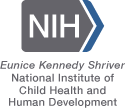Progress Report, August, 2011
The North Atlantic Population Project in its current phase has three specific goals: (1) expand the chronological dimension of the database by incorporating data from additional census years for each country; (2) link individuals between censuses to permit longitudinal analysis; and (3) improve the web-based tools for disseminating data and documentation.
In August 2011, we added data from Canada, Iceland, and Norway as well as linked data for Great Britain (forthcoming). Our new datasets include the complete count censuses of Iceland 1801 and 1901, and Norway 1801. The 1801 complete count datasets for Norway and Iceland were taken by way of a royal decree on February 1801 and are the oldest harmonized datasets in NAPP. We also released samples from the Canada 1852 and 1891 censuses.
The next phase of the NAPP project, in the coming years will (1) Triple the size of the database to approximately 365 million records, adding 38 new datasets for the period 1787 to 1930 from Albania, Britain, Canada, Denmark, Egypt, Iceland, Ireland, Germany, Norway, Mexico, Sweden, and the United States. (2) Leverage our research on record linkage to create numerous new linked microdata files that will allow expanded longitudinal analyses. (3) Connect the past to the present by merging NAPP with the Integrated Public Use Microdata Series (IPUMS), simplifying analysis of long-run change and ensuring long-run preservation and maintenance of the database.
In winter 2011, the NAPP consortium published a special issue on NAPP titled, Big Data: Large-Scale Historical Infrastructure from the Minnesota Population Center, Part 1 in the Historical Methods (January to March 2011, Volume 44, Number 1) containing articles detailing methodological innovations from the project.
NAPP in its current phase contains historical data from seven countries in the North Atlantic. Our next release in summer 2012 will tentatively include the 1910 Norwegian census, sample data from Germany, and additional complete count census from Sweden and Iceland. We will also expand our linked datasets.



